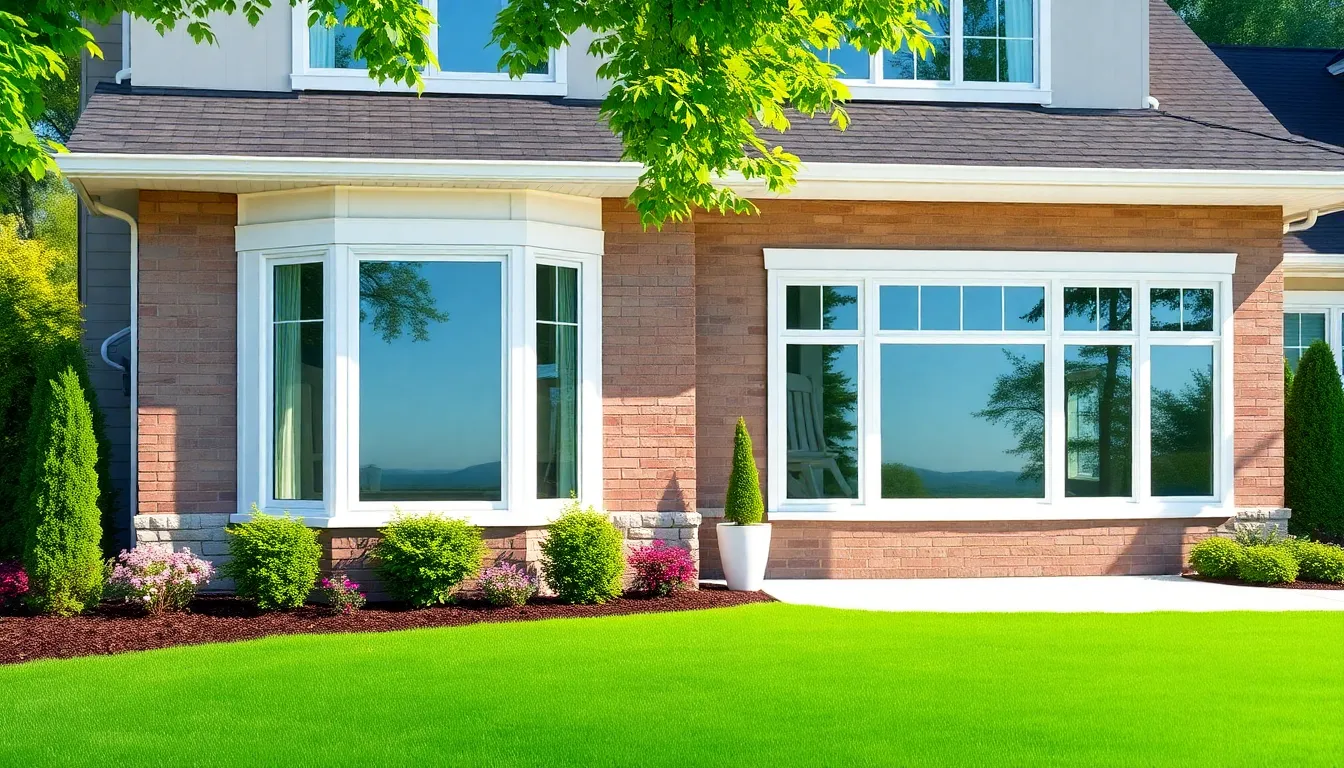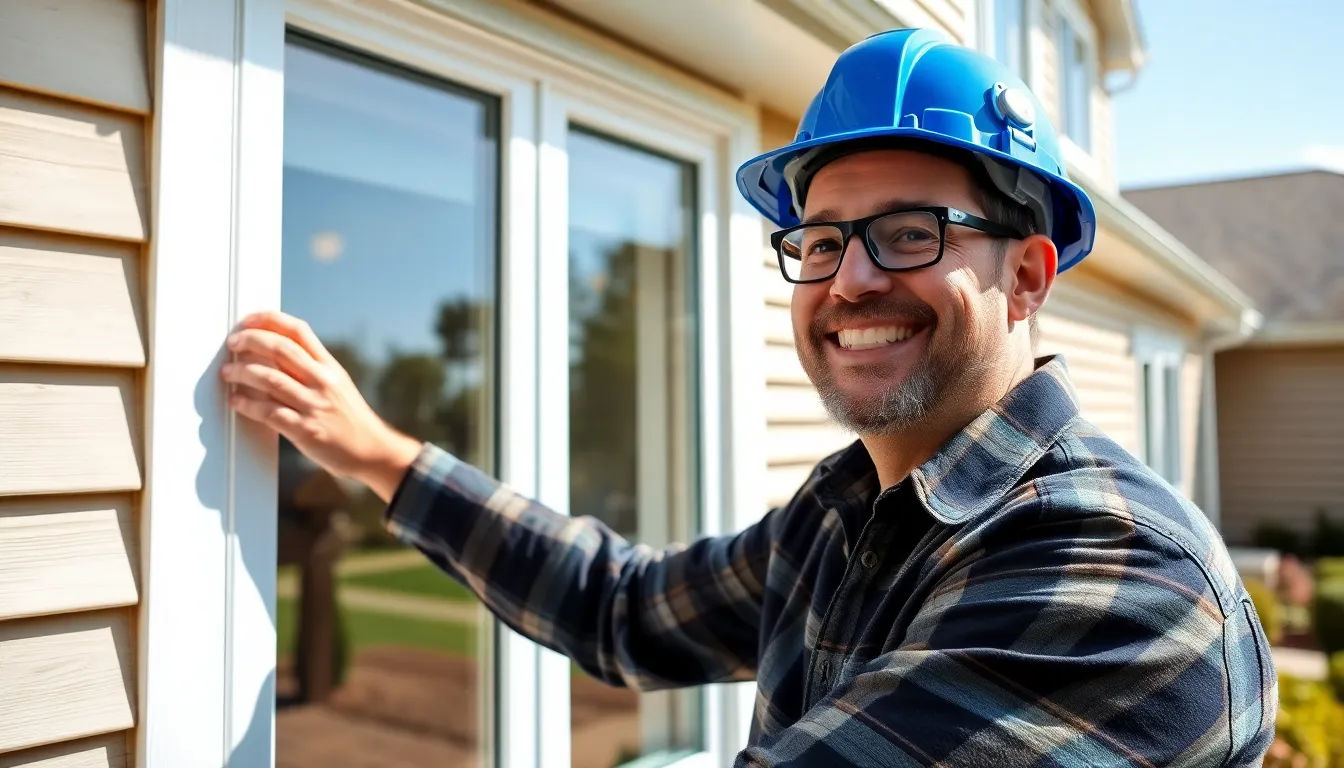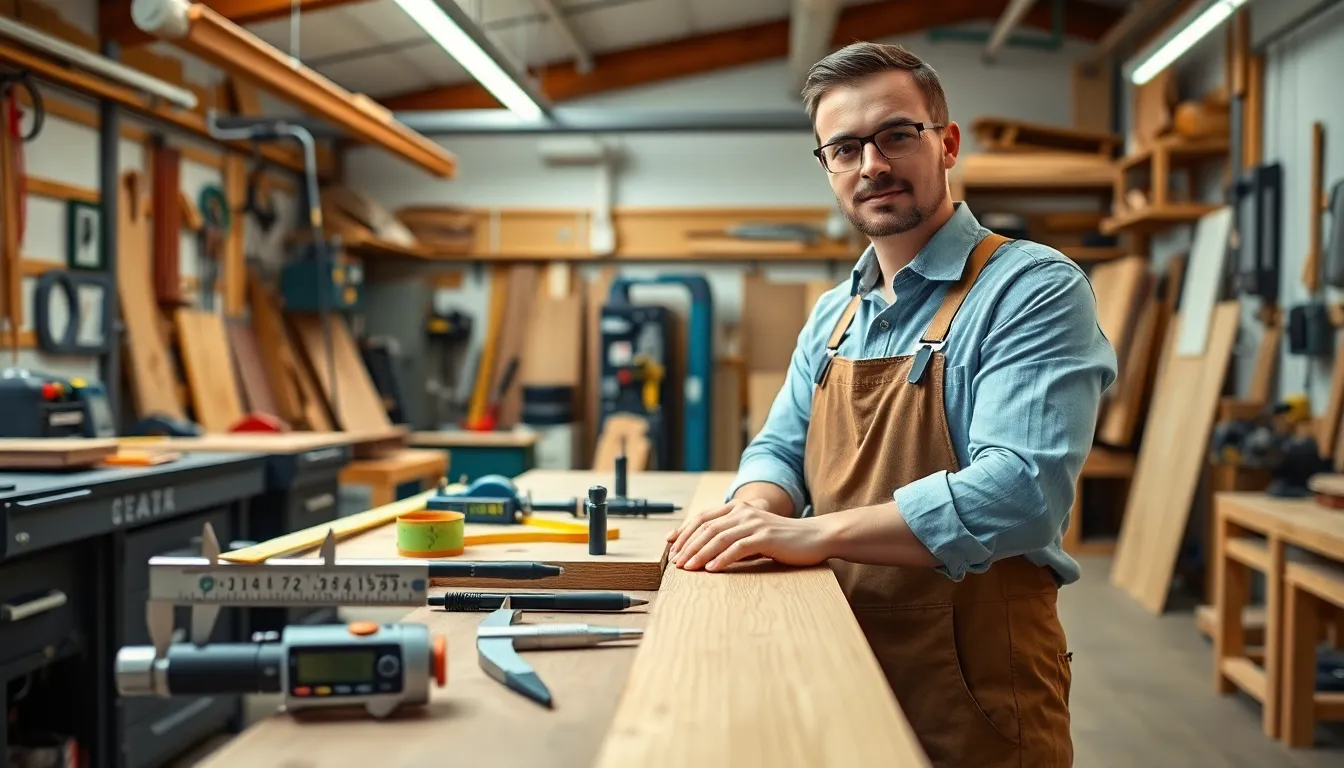Imagine living in a house where your windows are more of a drafty inconvenience than a view into the world. If that sounds familiar, it might be time for a window replacement. Not only can new windows boost your home’s curb appeal, but they can also save you from those pesky energy bills that seem to climb higher than your neighbor’s hedge.
Table of Contents
ToggleWhat Is Window Replacement?
Window replacement involves removing old windows and installing new ones in a home. This process can significantly improve a property’s appearance and functionality. Homeowners opt for window replacement to enhance energy efficiency, leading to lower energy bills.
Quality replacement windows often feature advanced insulation techniques and energy-efficient glass. Many options include double or triple-pane designs, which create better thermal barriers. Modern frames also deliver improved durability and reduced maintenance compared to traditional materials.
Installation plays a crucial role in the effectiveness of window replacement. Professional contractors ensure proper fit and sealing, minimizing air leaks and maximizing energy savings. When done correctly, new windows increase comfort by regulating indoor temperatures.
Additionally, window replacement can enhance property value. Real estate assessments often show better resale potential for homes with new, energy-efficient windows. Curb appeal increases as well, making homes more attractive to prospective buyers.
Various materials, including vinyl, wood, and fiberglass, offer different aesthetic and performance benefits. Each material has unique advantages in terms of durability, insulation, and maintenance requirements. Homeowners often choose based on personal preference and budget.
Overall, window replacement stands as a strategic investment for increasing comfort, saving on energy costs, and enhancing home value. Homeowners experiencing drafts or condensation may find immediate benefits from exploring this option.
Benefits Of Window Replacement

Window replacement provides numerous advantages for homeowners. New windows enhance energy efficiency and improve a home’s overall appearance.
Energy Efficiency
Enhanced energy efficiency represents one of the most significant benefits of window replacement. Modern windows utilize advanced insulation techniques, often involving double or triple-pane glass. These designs create effective thermal barriers that reduce heat transfer. Many homeowners experience a noticeable decrease in energy bills after the installation of newer, energy-efficient windows. Proper installation further maximizes this efficiency, as gaps and poor seals can lead to air leaks. Consequently, upgraded windows contribute to maintaining a comfortable indoor climate throughout the year.
Aesthetic Improvements
Aesthetic improvements play a vital role when considering window replacement. New windows provide a fresh look, boosting curb appeal significantly. Homeowners can choose from various materials, including vinyl, wood, and fiberglass, each offering unique visual qualities. Customizable options allow for specific designs that match personal styles and enhance architecture. New styles and finishes can transform the exterior and interior, creating a cohesive and attractive environment. In turn, investing in new windows often leads to increased property value, making homes more appealing to potential buyers.
Types Of Windows For Replacement
Homeowners often choose from various window styles for replacement, each providing unique benefits and aesthetics.
Double-Hung Windows
Double-hung windows offer versatility with their two operable sashes. Homeowners can open either the top or bottom sash, allowing for increased ventilation and easy cleaning. These windows suit traditional and modern homes, ensuring a timeless look. Available in various materials, including vinyl and wood, double-hung options enhance energy efficiency with advanced insulation. Many models feature low-E glass, reducing heat transfer while minimizing UV exposure. Additionally, these windows blend functionality with curb appeal, enhancing the property’s overall appearance.
Casement Windows
Casement windows operate on a hinge, swinging outward to maximize ventilation. Their design allows for unobstructed views and excellent airflow, perfect for tight spaces. They typically feature modern locking mechanisms for enhanced security and energy efficiency. Homeowners appreciate casement windows for their ease of operation and simple style that fits multiple architectural designs. Many casement windows utilize energy-efficient glass technologies and weatherstripping, which improve insulation. This type of window can improve natural light entering a home, creating a bright and inviting atmosphere.
Sliding Windows
Sliding windows consist of two sashes, one fixed and one that glides horizontally. These windows require minimal space and work well in areas with limited room for operable sashes. Many homeowners prefer sliding windows for their easy operation, as they can quickly open and close with one hand. They are available in various sizes and styles, allowing customization to match home aesthetics. Sliding windows often utilize dual weather stripping for effective air sealing, ensuring improved energy efficiency. Additionally, larger sliding window designs provide breathtaking views while enhancing natural light throughout living spaces.
The Window Replacement Process
Replacing windows involves several essential steps to ensure optimal results. Understanding the process can help homeowners feel confident in their choices.
Initial Inspection
An initial inspection assesses existing windows for damage and inefficiencies. This evaluation identifies issues like drafts, condensation, or frame deterioration. An expert typically conducts a thorough examination, checking the window’s structure and its fit within the opening. They measure the window sizes accurately to ensure a proper fit for replacements. Recommendations for suitable window types and materials often arise from this inspection. Energy-efficient options frequently perform best, contributing to savings on heating and cooling bills.
Installation
Installation is a critical phase in the replacement process. First, removing old windows requires careful handling to avoid damaging surrounding structures. New windows then need proper alignment and secure fitting for optimal performance. The use of insulation foam during installation enhances thermal barriers, minimizing air leaks. Proper sealing around the frames improves energy efficiency significantly. An expert installer ensures that everything meets manufacturer specifications. Homeowners often notice immediate improvements in drafts and energy efficiency once installation is complete. Each step in this phase aims to maximize durability and performance for the long term.
Choosing The Right Contractor
Finding the right contractor for window replacement is essential for achieving optimal results. Researching local contractors provides insight into their reputation and past work. Reviews from previous customers highlight service quality and reliability.
Requesting multiple quotes allows homeowners to compare pricing and services. Assessing each contractor’s experience with energy-efficient windows ensures expertise in the desired product type. Verifying licenses and insurance protects against potential liabilities during the installation process.
Inquiring about warranties on both windows and installation gives peace of mind. Professionals should offer clear warranty details, covering defects and labor. Examining their portfolio showcases previous projects, reflecting the style and quality of work.
Discussing timelines upfront establishes expectations for project duration. Understanding their communication style is vital; contractors should respond promptly and clearly.
Ensuring the contractor conducts a thorough initial assessment of the home is necessary. This evaluation identifies specific issues with existing windows and helps determine suitable replacements. Homeowners should observe how the contractor communicates potential solutions during the consultation.
Considering energy-efficient options focuses on long-term savings and environmental impact. A good contractor stays informed about the latest technologies and materials available on the market.
Ultimately, a reliable contractor combines experience, competitive pricing, and excellent customer feedback. Together, these elements ensure a smooth window replacement process and contribute to enhancing the home’s overall value and energy efficiency.
Window replacement is a transformative investment that can significantly enhance a home’s energy efficiency and aesthetic appeal. By opting for new windows homeowners can enjoy lower energy bills and improved comfort. The variety of window types available allows for customization to fit individual styles and architectural designs.
Choosing the right contractor is crucial to ensure a seamless installation process. By prioritizing quality workmanship and energy-efficient options homeowners can maximize the benefits of their investment. With the right approach window replacement not only boosts property value but also creates a more inviting living environment.


